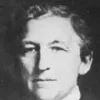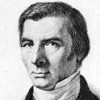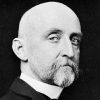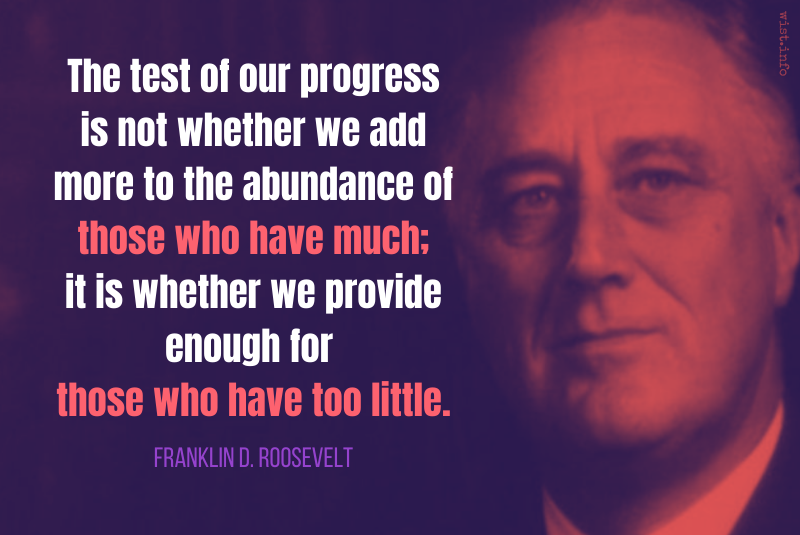The Spirit of Commerce, Madam, which even insinuates itself into Families, and influences holy Matrimony, and thereby corrupts the Morals of Families as well as destroys their Happiness, it is much to be feared is incompatible with that purity of Heart, and Greatness of soul which is necessary for an happy Republic.
John Adams (1735–1826) American lawyer, Founding Father, statesman, US President (1797–1801)
Letter (1776-04-16) to Mercy Otis Warren
(Source)
Quotations about:
profit
Note not all quotations have been tagged, so Search may find additional quotes on this topic.
We Americans are not usually thought to be a submissive people, but of course we are. Why else would we allow our country to be destroyed? Why else would we be rewarding its destroyers? Why else would we all — by proxies we have given to greedy corporations and corrupt politicians — be participating in its destruction? Most of us are still too sane to piss in our own cistern, but we allow others to do so and we reward them for it. We reward them so well, in fact, that those who piss in our cistern are wealthier than the rest of us.
Wendell Berry (b. 1934) American farmer, educator, poet, conservationist
Essay (1970-01-01), “Compromise, Hell!” Orion Magazine
(Source)
A little well-gotten will do us more good,
Than lordships and scepters by Rapine and Blood.Benjamin Franklin (1706-1790) American statesman, scientist, philosopher, aphorist
Poor Richard (1743 ed.)
(Source)
Knaves and Hipocrates see through the Whole sistem at once. I will take the People their own way says one of these, I will serve them without Pay, I will give them money, I will make them beleive that I am perfectly disinterested untill I gain their Confidence and exite their enthusiasm. then I will Carry that Confidence and Enthusiasm to markett and will sell it for more than all I give them, and all their Pay would have amounted to — si populus vult decipi decipiatur [if the people want to be deceived, they will be deceived].
John Adams (1735–1826) American lawyer, Founding Father, statesman, US President (1797–1801)
Letter (1785-09-10) to John Jebb
(Source)
Spelling as written by Adams.
This new understanding undermines the old admiration of worldly success as such. We are beginning to abandon our tolerance of the abuse of power by those who betray for profit the elementary decencies of life.
Franklin Delano Roosevelt (1882–1945) American lawyer, politician, statesman, US President (1933–1945)
Speech (1937-01-20), Inaugural Address, Washington, D.C.
(Source)
If Enterprise is afoot, Wealth accumulates whatever may be happening to Thrift; and if Enterprise is asleep, Wealth decays, whatever Thrift may be doing.
Happiness lies not in the mere possession of money; it lies in the joy of achievement, in the thrill of creative effort. The joy and the moral stimulation of work no longer must be forgotten in the mad chase of evanescent profits. These dark days, my friends, will be worth all they cost us if they teach us that our true destiny is not to be ministered unto but to minister to ourselves and to our fellow men.
Franklin Delano Roosevelt (1882–1945) American lawyer, politician, statesman, US President (1933–1945)
Speech (1933-03-04), Inaugural Address, Washington, D.C.
(Source)
At any rate to me it seems clearer every day that the moral problem of our age is concerned with the love of money, with the habitual appeal to the money motive in nine-tenths of the activities of life, with the universal striving after individual economic security as the prime object of endeavour, with the social approbation of money as the measure of constructive success, and with the social appeal to the hoarding instinct as the foundation of the necessary provision for the family and for the future.
John Maynard Keynes (1883-1946) English economist
Essays in Persuasion, Part 4 “Politics,” ch. 1, sec. 2 (1931)
(Source)
I see a lot in the Papers about this 20th or Child Labor Amendment, and I have been asked how I stand on that. If Congress or the States would just pass one law, as follows, they wouldn’t need any Amendment: “EVERY CHILD, REGARDLESS OF AGE, SHALL RECEIVE THE SAME WAGE AS A GROWN PERSON.” That will stop your child labor.
Will Rogers (1879-1935) American humorist
Column (1924-12-28), “Weekly Article: Aviation is 20 Years Old but Congress Never Heard of It” [No. 107]
(Source)
Almost all of us want to be richer than we are, even if we are very rich indeed. To be sure, there are exceptions; saints, ascetics, those who travel light and will not add even the weight of a wallet, a few whose material ambitions are fully satisfied and who therefore truly want nothing further. But the rest of us want more than we have, and the specially thoughtful sometimes wonder whether there could ever come a time when we didn’t.
The crucial question, though, leaving out of consideration the exempted categories, is: what are we willing to do to increase our wealth?Bernard Levin (1928-2004) British journalist, critic, broadcaster, satirist
Essay (1989-03-23), “Do You Seriously Want to Be Swindled?” The Times, London
Collected in Now Read On (1980).
I believe that the recent course of our history has demonstrated that, while we may utilize their expert knowledge of certain problems and the special facilities with which they are familiar, we cannot allow our economic life to be controlled by that small group of men whose chief outlook upon the social welfare is tinctured by the fact that they can make huge profits from the lending of money and the marketing of securities — an outlook which deserves the adjectives “selfish” and “opportunist.”
Franklin Delano Roosevelt (1882–1945) American lawyer, politician, statesman, US President (1933–1945)
Speech (1932-05-22), Commencement, Oglethorpe University, Atlanta, Georgia
(Source)
But don’t all things,
virtue, a good name, honor, all that’s human and divine,
obey money, lovely money?[Omnis enim res,
Virtus, fama, decus, divina, humanaque pulchris
Divitiis parent.]Horace (65–8 BC) Roman poet, satirist, soldier, politician [Quintus Horatius Flaccus]
Satires [Saturae, Sermones], Book 2, # 3, “Si raro scribes,” l. 94ff (2.3.94-96) (30 BC) [tr. Fuchs (1977)]
(Source)
Damasippus (quoting the Stoic philosopher Stertinius?) on the mindset of a miser.
(Source (Latin)). Alternate translations:For all and every thinge (quod he) vertue, renoumne, and fame,
The corpes, the goste, dothe crouch to coyne and serue vnto the same.
[tr. Drant (1567)]For every thing divine and humane to
Virtue, wit, comeliness and honour do
Submit their Necks to riches splendid sway,
[tr. A. B.; ed. Brome (1666)]For Honor, Vertue, Fame, and all Divine
And Humane Things must follow lovely Coin.
[tr. Creech (1684)]For virtue, glory, beauty, all divine
And human powers, immortal gold! are thine.
[tr. Francis (1747)]All things in his esteem -- fame, virtue, health,
Human and heavenly -- bow to blessed wealth.
[tr. Howes (1845)]For every thing, virtue, fame, glory, divine and human affairs, are subservient to the attraction of riches.
[tr. Smart/Buckley (1853)]For merit, fame,
and glory, all things human and divine bow
low before fair Money's power.
[tr. Millington (1870)]For all things human and divine, renown,
Honour, and worth at money's shrine bow down.
[tr. Conington (1874)]Riches, you know, are the beautiful things: everything else, worth, repute, honour, things divine and things human, bow down to them.
[tr. Wickham (1903)]For all things — worth, repute, honour, things divine and human — are slaves to the beauty of wealth.
[tr. Fairclough (Loeb) (1926)]Everything else is the slave of gorgeous wealth:
Virtue, renown, moral dignity, all thing divine
And human.
[tr. Palmer Bovie (1959)]Virtue, fame, honor -- everything human,
Everything divine, is illuminated by money, shines only (to his mind)
In the beauty and glow of wealth.
[tr. Raffel (1983)]In fact,
everything -- virtue, a good name,
honor, human and divine values --
all bowed down to the beauty of riches.
[tr. Alexander (1999)]The fact is that goodness,
honour, reputation -- everything human and divine -- gives way
to the charm of money.
[tr. Rudd (2005 ed.)]He thought all things,
Virtue, reputation, honour, things human or divine
Bowed to the glory of riches.
[tr. Kline (2015)]
No gains without pains.
Benjamin Franklin (1706-1790) American statesman, scientist, philosopher, aphorist
Poor Richard (1745 ed.)
(Source)
Franklin recapped this in his final Poor Richard Improved (1758 ed.): "There are no Gains, without Pains." This was in turn reprinted in abridged Way to Wealth (1773).
Sometimes erroneously cited to Poor Richard (1734 ed.); that has something different in structure and meaning: "Hope of gain / Lessens pain."
See also Breton (1577) and Herrick (1648).
But I have learned a thing or two: I know as sure as fate,
When we lock up our lives for wealth, the gold key comes too late.Will Carleton (1845-1912) American poet [William McKendree Carleton]
“The Ancient Miner’s Story,” st. 13, Harper’s Weekly (1884-03-22)
(Source)
Collected in Over the Hill to the Poor-house and Other Poems (1895).
The rich are like beasts of burden, carrying treasure all day, and at the night of death unladen; they carry to their grave only the bruises and marks of their toil.
Augustine of Hippo (354-430) Christian church father, philosopher, saint [b. Aurelius Augustinus]
(Attributed)
I could not find something similar to this in searches of Augustine's writings. The usual earliest citation for this wording is Josiah Hotchkiss Gilbert, ed., Dictionary of Burning Words of Brilliant Writers (1895). But it previously shows up in Edward Payson Tenney, Jubilee Essays: A Plea for the Unselfish Life, "The Retributions" (1862), though again with no original citation.
See, in contrast, Matthew 11:28-30.
Poets, orators, even philosophes, say the same things about fame we were told as boys to encourage us to win prizes. What they tell children to make them prefer being praised by their nannies to eating jam tarts is the same idea constantly drummed into us to encourage us to sacrifice our real interests in the hope of being praised by our contemporaries or by posterity.
[Ce que les poètes, les orateurs, même quelques philosophes nous disent sur l’amour de la Gloire, on nous le disait au Collège, pour nous encourager à avoir les prix. Ce que l’on dit aux enfans pour les engager à préférer à une tartelette les louanges de leurs bonnes, c’est ce qu’on répète aux hommes pour leur faire préférer à un intérêt personnel les éloges de leurs contemporains ou de la postérité.]Nicolas Chamfort (1741-1794) French writer, epigrammist (b. Nicolas-Sébastien Roch)
Products of Perfected Civilization [Produits de la Civilisation Perfectionée], Part 1 “Maxims and Thoughts [Maximes et Pensées],” ch. 1, ¶ 85 (1795) [tr. Parmée (2003), ¶ 69]
(Source)
(Source (French)). Alternate translations:The things which poets, orators, and even a few philosophers tell us about the love of Glory, are exactly the things we are told at College to encourage us to win prizes. And what they say to children to make them prefer the praise of their nurses to a tartlet, they repeat to grown men to make them prefer the eulogy of their fellows or of posterity to personal advantage.
[tr. Mathers (1926)]All that the poets, the orators, and even certain philosophers tell us about the love of fame we were told at school to urge us to win prizes. All that is said to encourage children to prefer the praise of their mentors to a piece of pie is repeated to men to make them consider their personal profit less desirable than the plaudits of their contemporaries and of posterity.
[tr. Merwin (1969)]Things said by poets, orators, even some philosophers, about love of glory, were told to us at the Collège to encourage us to win prizes. What children are told to incline them to prefer a slice of tart to their nurses' approval, is the same as what men are repeatedly told to make them put the commendation of their contemporaries, or that of posterity, before their personal interest.
[tr. Pearson (1973)]What poets, orators, even several philosophers have said about the love of fame, was told to us at school to encourage us to win prizes.
[tr. Dusinberre (1992)]What poets, orators, and even philosophers say to us about love of glory is the same as what people said to us in the colleges to encourage us to compete for prizes. What people tell children to make them prefer the praise of their nurses to something silly is the same thing that people repeat to men to make them prefer the praise of their contemporaries or of posterity to their own self-interest.
[tr. Siniscalchi (1994)]
I don’t know that it’s an issue for anybody but me, but it’s true that nothing I did where the only reason for doing it was the money was ever worth it, except as bitter experience. Usually I didn’t wind up getting the money, either. The things I did because I was excited, and wanted to see them exist in reality have never let me down, and I’ve never regretted the time I spent on any of them.
Neil Gaiman (b. 1960) British author, screenwriter, fabulist
Speech (2012-05-17), Commencement, University of the Arts, Philadelphia [06:33]
(Source)
The King’s cheese is half wasted in parings: But no matter, ’tis made of the peoples milk.
Benjamin Franklin (1706-1790) American statesman, scientist, philosopher, aphorist
Poor Richard (1735 ed.)
(Source)
Focusing your life solely on making a buck shows a certain poverty of ambition. It asks too little of yourself. You need to take up the challenges that we face as a nation and make them your own. Not because you have a debt to those who helped you get here, although you do have that debt. Not because you have an obligation to those who are less fortunate than you, although I do think you do have that obligation. It’s primarily because you have an obligation to yourself. Because individual salvation has always depended on collective salvation. Because it’s only when you hitch your wagon to something larger than yourself that you realize your true potential.
Barack Obama (b. 1961) American politician, US President (2009-2017)
Speech (2005-06-04), Commencement, Knox College, Galesburg, Illinois
(Source)
Men can be unjust, because it is in their interest to act so, and they prefer their own satisfaction to that of others. They always act with themselves in mind. No one is gratuitously wicked; there must be a determining cause, and it is always one of self-interest.
[Les hommes peuvent faire des injustices, parce qu’ils ont intérêt de les commettre et qu’ils préfèrent leur propre satisfaction à celle des autres. C’est toujours par un retour sur eux-mêmes qu’ils agissent: nul n’est mauvais gratuitement; il faut qu’il y ait une raison qui détermine, et cette raison est toujours une raison d’intérêt.]
Charles-Lewis de Secondat, Baron de Montesquieu (1689-1755) French political philosopher
Persian Letters [Lettres Persanes], Letter 84, Usbek to Rhédi (1721) [tr. Healy (1964), # 83]
Montesquieu's argues that an omnipotent God must be just, because God has no interest that cannot be satisfied through injustice.
(Source (French)). Alternate translations:Men may commit injustice, because it is in their interest to do it, and they chuse rather to satisfy themselves and others. It is always with an eye to themselves that they act: no body is wicked gratis: he will have some reason to sway him; and that reason is always a reason of interest.
[tr. Ozell (1760 ed.)]Men may do injustice, because it is in their interest to commit it, and because they prefer their own private satisfaction to that of others. It is always with a view to themselves that they act: nobody is wicked for nothing: he must have some reason that determines himl and this reason is always a reason of interest.
[tr. Floyd (1762), # 83]Men act unjustly, because it is their interest to do so, and because they prefer their own satisfaction to that of others. They act always to secure some advantage to themselves: no one is a villain gratis; there is always a determining motive, and that motive is always an interested one.
[tr. Davidson (1891)]Men act unjustly, because it is their interest to do so, and they prefer their own satisfaction to that of others. In acting they always have in view the effect their action will have on themselves: no one is bad for nothing; every one must have a determining motive, and that motive is self-interest.
[tr. Betts (1897)]Men can commit injustices, because it is in their interest to do so, and they would rather satisfy themselves than others. It is always through thinking of themselves that they act unjustly; no one is gratuitously bad, there must be a reason which determines the act, and that reason is invariably one of self-interest.
[tr. Mauldon (2008)]Men are capable of injustice, because their self-interest leads them toward it, and because they prefer their own satisfaction to that of others. Everything always revolves around themselves. No evil is ever done gratuitously, for there is always a reason behind it, and that reason is always one of self-interest.
[tr. MacKenzie (2014), # 83]
Advanced cultures are usually sophisticated enough, or have been sophisticated enough at some point in their pasts, to realize that foxes shouldn’t be relied on to guard henhouses.
Jane Jacobs (1916-2006) American-Canadian journalist, author, urban theorist, activist
Dark Age Ahead, ch. 6 (2004)
(Source)
On business regulation, versus self-policing.
No play is rubbish if it pleases and if it takes money at the door.
The least vile of all merchants is he who says: “Let us be virtuous, since, thus, we shall gain much more money than the fools who are dishonest.” For the merchant, even honesty is a financial speculation.
[Le moins infâme de tous les commerçants, c’est celui qui dit: Soyons vertueux pour gagner beaucoup plus d’argent que les sots qui sont vicieux. — Pour le commerçant, l’honnêteté elle-même est une spéculation de lucre.]
Charles Baudelaire (1821-1867) French poet, essayist, art critic
Journaux Intimes [Intimate Journals], “Mon cœur mis à nu [My Heart Laid Bare],” § 47 (1864–1867; pub. 1887) [tr. Isherwood (1930)]
(Source)
(Source (French)). Alternate translation:The least despicable of merchants is the one who says: Let us be virtuous so that we can make far more money than those vice-ridden fools. -- For the merchant, even honesty offers a money-making opportunity.
[tr. Sieburth (2022)]
Printers are educated in the Belief, that when Men differ in Opinion, both Sides ought equally to have the Advantage of being heard by the Publick; and that when Truth and Error have fair Play, the former is always an overmatch for the latter: Hence they chearfully serve all contending Writers that pay them well, without regarding on which side they are of the Question in Dispute.
Benjamin Franklin (1706-1790) American statesman, scientist, philosopher, aphorist
“Apology for Printers,” Philadelphia Gazette (1731-06-10)
(Source)
Books aren’t just commodities; the profit motive is often in conflict with the aims of art. We live in capitalism, its power seems inescapable — but then, so did the divine right of kings. Any human power can be resisted and changed by human beings. Resistance and change often begin in art. Very often in our art, the art of words.
Ursula K. Le Guin (1929-2018) American writer
Speech, accepting the National Book Foundation Medal (19 Nov 2014)
(Source)
On receiving the National Book Foundation Medal for Distinguished Contribution to American Letters at the 65th National Book Awards. Video of the speech.
My views may seem to ignore a moral imperative that businesses should follow virtuous principles, whether or not it is most profitable for them to do so. Instead I prefer to recognize that, throughout human history, in all politically complex human societies in which people encounter other individuals with whom they have no ties of family or clan relationship, government regulation has arisen precisely because it was found to be necessary for the enforcement of moral principles. Invocation of moral principles is a necessary first step for eliciting virtuous behavior, but that alone is not a sufficient step.
Jared Diamond (b. 1937) American geographer, historian, ornithologist, author
Collapse: How Societies Choose to Fail or Succeed, “Big Businesses and the Environment” (2005)
(Source)
Few men, indeed, are so mad that they do not know when they are doing wrong. But so avid is their pursuit of goods that wrongdoing has become an element of all they do. To protest that fact is idle. Our politics, our business — little and big, our professions, our labor, are smitten in every facet with a corruption occasioned by reckless determination to make not just a reasonable profit but all the profit that can be wrung from every enterprise. Our commonest man, emulating his superiors, forges ahead with a brick on the safety valve of his conscience. Think over your morning paper in that light.
By virtue of exchange, one man’s prosperity is beneficial to all others.
Large banks are essentially large children in search of candy, except the candy is profits. The only thing preventing them from grabbing all the candy and making themselves sick are laws and regulations. We cannot rely on them to act morally. It’s not their nature.
Thornton McEnery (contemp.) American business journalist
“Jeffrey Epstein Should Be the Literal End of Deutshe Bank USA,” Above the Law (11 Jul 2019)
(Source)
As far as the advocacy of peace rests on material motives like economy and prosperity, it is the service of Mammon; and the bottom of the platform will drop out when Mammon thinks that war will pay better.
A. T. Mahan (1840-1914) American admiral, strategist, historian [Alfred Thayer Mahan]
(Attributed)
(Source)
Attributed in William Ralph Inge, "The Indictment against Christianity" (1917), Outspoken Essays, ch. 10 (1919).
During the greater part of the nineteenth century the significance of the opposition between the two principles of individual rights and social functions was masked by the doctrine of the inevitable harmony between private interests and public good. Competition, it was argued, was an effective substitute for honesty. Today … few now would profess adherence to the compound of economic optimism and moral bankruptcy which led a nineteenth century economist to say: “Greed is held in check by greed, and the desire for gain sets limits to itself.”
R. H. Tawney (1880-1962) English writer, economist, historian, social critic [Richard Henry Tawney]
The Acquisitive Century, ch. 3 “The Acquisitive Society” (1920)
(Source)
If conservatives get to call universal health care “socialized medicine,” then I get to call private, for-profit health care “soulless, vampire bastards making money off human pain.”
In our industrial and social system the interests of all men are so closely intertwined that in the immense majority of cases a straight-dealing man who by his efficiency, by his ingenuity and industry, benefits himself must also benefit others. Normally the man of great productive capacity who becomes rich by guiding the labor of other men does so by enabling them to produce more than they could produce without his guidance; and both he and they share in the benefit, which comes also to the public at large. The superficial fact that the sharing may be unequal must never blind us to the underlying fact that there is this sharing, and that the benefit comes in some degree to each man involved.
There is a crime here that goes beyond denunciation. There is a sorrow here that weeping cannot symbolize. There is a failure here that topples all our success. The fertile earth, the straight tree rows, the sturdy trunks, and the ripe fruit. And children dying of pellagra must die because a profit cannot be taken from an orange. And coroners must fill in the certificate — died of malnutrition — because the food must rot, must be forced to rot.
In the eyes of the people there is the failure; and in the eyes of the hungry there is a growing wrath. In the souls of the people the grapes of wrath are filling and growing heavy, growing heavy for the vintage.
What shall it profit a man, if he shall gain the whole world, and lose his own soul?
[τί γὰρ ὠφελεῖ ἄνθρωπον κερδῆσαι τὸν κόσμον ὅλον καὶ ζημιωθῆναι τὴν ψυχὴν αὐτοῦ]
The Bible (The New Testament) (AD 1st - 2nd C) Christian sacred scripture
Mark 8: 36 (Jesus) [KJV (1611)]
(Source)
This passage is paralleled in Matthew 16:26 and Luke 9:25.
(Source (Greek)). Alternate translations:What gain, then, is it for a man to win the whole world and ruin his life?
[JB (1966)]What gain, then, is it for anyone to win the whole world and forfeit his life?
[NJB (1985)]Do you gain anything if you win the whole world but lose your life? Of course not!
[GNT (1992 ed.)]Why would people gain the whole world but lose their lives?
[CEB (2011)]For what will it profit them to gain the whole world and forfeit their life?
[NRSV (2021 ed.)]
When one sees the number and variety of institutions which exist for the purposes of education, and the vast throng of scholars and masters, one might fancy the human race to be very much concerned about truth and wisdom. But here, too, appearances are deceptive. The masters teach in order to gain money, and strive, not after wisdom, but the outward show and reputation of it; and the scholars learn, not for the sake of knowledge and insight, but to be able to chatter and give themselves airs.
[Wenn man die Vielen und Mannigfaltigen Anstalten zum Lehren und Lernen un das so große Gedränge von Schülern und Meistern sieht, könnte man glauben, daß es dem Menschengeschlechte gar sehr um Einsicht und Wahrheit zu thun sei. Aber auch hier trügt der Schein. Jene lehren, um Geld zu verdienen und streben nicht nach Weisheit, sondern nach dem Schein und Kredit derselben: und Diese lernen nicht, um Kenntniß und Einsicht zu erlangen; sondern um schwätzen zu können nd sich ein Ansehn zu geben Alle dreißig Jahre nämlich tritt so ein sondern um schwätzen zu können und sich ein Ansehn zu geben.]
Arthur Schopenhauer (1788-1860) German philosopher
Parerga and Paralipomena, Vol. 2, ch. 21 “On Learning and the Learned [Über Gelehrsamkeit und Gelehrte],” § 244 (1851) [tr. Saunders (1890)]
(Source)
(Source (German)). Alternate translation:When we see the different institutions for teaching and learning and the vast throng of pupil and masters, we might imagine that the human race was very much bent on insight and truth; but here appearances are deceptive. The masters teach in order to earn money and aspire not to wisdom, but to the semblance and reputation thereof; the pupils learn not to acquire knowledge and insight, but to be able to talk and chat and to give themselves airs.
[tr. Payne (1974)]
I believe in shaping the ends of government to protect property as well as human welfare. Normally, and in the long run, the ends are the same; but whenever the alternative must be faced, I am for men and not for property, as you were in the Civil War. I am far from underestimating the importance of dividends; but I rank dividends below human character.
Theodore Roosevelt (1858–1919) American politician, statesman, conservationist, writer, US President (1901–1909)
Speech (1910-08-31), “The New Nationalism,” John Brown Memorial Park dedication, Osawatomie, Kansas
(Source)
The absence of effective State, and, especially, National, restraint upon unfair money-getting has tended to create a small class of enormously wealthy and economically powerful men, whose chief object is to hold and increase their power. The prime need is to change the conditions which enable these men to accumulate power which is not for the general welfare that they should hold or exercise.
Theodore Roosevelt (1858–1919) American politician, statesman, conservationist, writer, US President (1901–1909)
Speech (1910-08-31), “The New Nationalism,” John Brown Memorial Park dedication, Osawatomie, Kansas
(Source)
Now, this means that our government, national and State, must be freed from the sinister influence or control of special interests. Exactly as the special interests of cotton and slavery threatened our political integrity before the Civil War, so now the great special business interests too often control and corrupt the men and methods of government for their own profit. We must drive the special interests out of politics.
Theodore Roosevelt (1858–1919) American politician, statesman, conservationist, writer, US President (1901–1909)
Speech (1910-08-31), “The New Nationalism,” John Brown Memorial Park dedication, Osawatomie, Kansas
(Source)
Make it thy chief Design and thy great Business, not to be Rich and Great: but so to live in this World that thou mayest reasonably believe thou has God for thy Friend.
Thomas Fuller (1654-1734) English physician, preacher, aphorist, writer
Introductio ad Prudentiam, Vol. 1, # 939 (1725)
(Source)
Still, I do not mean to find fault with the accumulation of property, provided it hurts nobody, but unjust acquisition of it is always to be avoided.
[Nec vero rei familiaris amplificatio nemini nocens vituperanda est, sed fugienda semper iniuria est.]
Marcus Tullius Cicero (106-43 BC) Roman orator, statesman, philosopher
De Officiis [On Duties; On Moral Duty; The Offices], Book 1, ch. 8 (1.8) / sec. 25 (44 BC) [tr. Miller (1913)]
(Source)
(Source (Latin)). Alternate translations:Not but that a moderate desire of riches, and bettering a man's estate, so long as it abstains from oppressing of others, is allowable enough; but a very great care ought always to be taken that we be not drawn to any injustice by it.
[tr. Cockman (1699)]The enlargement of fortune is blameless, while no man suffers by its increase; but injury is forever to be avoided.
[tr. McCartney (1798)]Nor indeed is the mere desire to improve one's private fortune, without injury to another, deserving of blame; but injustice must ever be avoided.
[tr. Edmonds (1865)]Nor, indeed, is the increase of property, without harm to any one, to be blamed; but wrong-doing for the sake of gain is never to be tolerated.
[tr. Peabody (1883)]Not that we have any fault to find with the innocent accumulation of property; it is the unjust acquisition of it of which we must beware.
[tr. Gardiner (1899)]Of course, no one should criticize an increase in a family's estate that harms no one else, but it should never involve breaking the law.
[tr. Edinger (1974)]
We must honestly admit that capitalism has often left a gulf between superfluous wealth and abject poverty, has created conditions permitting necessities to be taken from the many to give luxuries to the few, and has encouraged small-hearted men to become cold and conscienceless so that, like Dives before Lazarus, they are unmoved by suffering, poverty-stricken humanity. The profit motive, when it is the sole basis of an economic system, encourages cutthroat competition and selfish ambition that inspire men to be more I-centered than thou-centered.
Martin Luther King, Jr. (1929-1968) American clergyman, civil rights leader, social activist, preacher
Where Do We Go from Here: Chaos or Community? (1967)
(Source)
Honour and profit lie not in one sacke.
George Herbert (1593-1633) Welsh priest, orator, poet.
Jacula Prudentum, or Outlandish Proverbs, Sentences, &c. (compiler), # 232 (1640 ed.)
(Source)
Virtue and Simplicity of Manners, are indispensably necessary in a Republic, among all orders and Degrees of Men. But there is So much Rascallity, so much Venality and Corruption, so much Avarice and Ambition, such a Rage for Profit and Commerce among all Ranks and Degrees of Men even in America, that I sometimes doubt whether there is public Virtue enough to support a Republic.
John Adams (1735–1826) American lawyer, Founding Father, statesman, US President (1797–1801)
Letter (1776-01-08) to Mercy Otis Warren
(Source)
Failure: A man who has blundered but is not able to cash in on the experience.
Elbert Hubbard (1856-1915) American writer, businessman, philosopher
The Roycroft Dictionary (1914)
(Source)
He that will have the Kernel, must crack the Shell.
Thomas Fuller (1654-1734) English physician, preacher, aphorist, writer
Gnomologia: Adages and Proverbs (compiler), # 2348 (1732)
(Source)
We have always known that heedless self-interest was bad morals; we know now that it is bad economics.
Franklin Delano Roosevelt (1882–1945) American lawyer, politician, statesman, US President (1933–1945)
Speech (1937-01-20), Inaugural Address, Washington, D.C.
(Source)
(Source (Audio)). Regarding the Stock Market Crash and ensuing Great Depression.
The test of our progress is not whether we add more to the abundance of those who have much; it is whether we provide enough for those who have too little.
The man of honor thinks of his character, the inferior man of his position. The man of honor desires justice, the inferior man favor.
[君子懷德、小人懷土、君子懷刑、小人懷惠。]
Confucius (c. 551- c. 479 BC) Chinese philosopher, sage, politician [孔夫子 (Kǒng Fūzǐ, K'ung Fu-tzu, K'ung Fu Tse), 孔子 (Kǒngzǐ, Chungni), 孔丘 (Kǒng Qiū, K'ung Ch'iu)]
The Analects [論語, 论语, Lúnyǔ], Book 4, verse 11 (4.11) (6th C. BC – AD 3rd C.) [tr. Soothill (1910)]
(Source)
(Source (Chinese)). Alternate translations:The superior man thinks of virtue; the small man thinks of comfort. The superior man thinks of the sanctions of law; the small man thinks of favours which he may receive.
[tr. Legge (1861)]The masterly man has an eye to virtue, the common man, to earthly things; the former has an eye to penalties (for error), the latter, to favour.
[tr. Jennings (1895)]A wise man regards the moral worth of a man; a fool, only his position. A wise man expects justice; a fool expects favours.
[tr. Ku Hung-Ming (1898)]The proper man is concerned with examining his consciousness and acting on it, the small man is concerned about land; the superior man about legality, the small man about favors.
[tr. Pound (1933)]Where gentlemen set their hearts upon moral force (tê), the commoners set theirs upon the soil. Where gentlemen think only of punishments, the commoners think only of exceptions.
[tr. Waley (1938)]The perfect gentleman cherishes high moral conduct; the mean man, well-being. The perfect gentleman cherishes the penal code; the mean man, ex¬ emptions therefrom.
[tr. Ware (1950)]While the gentleman cherishes benign rule, the small man cherishes his native land. While the gentleman cherishes a respect for the law, the small man cherishes generous treatment.
[tr. Lau (1979)]The gentleman cherishes virtue, but the small man cherishes the soil; the gentleman cherishes the rigors of the law, but the small man cherishes leniency.
[tr. Dawson (1993)]A gentleman seeks virtue; a small man seeks land. A gentleman seeks justice; a small man seeks favors.
[tr. Leys (1997)]The gentleman cherishes virtue; the small man cherishes land. The gentleman cherishes institutions; the small man cherishes favors.
[tr. Huang (1997)]The gentlemen are concerned about the virtuousness; the mean persons are concerned about the land. The gentlemen are concerned about the status; the mean persons are concerned about the benefit.
[tr. Cai/Yu (1998), #77]Exemplary persons (junzi) cherish their excellence; petty persons cherish their land. Exemplary persons cherish fairness; petty persons cherish the thought of gain.
[tr. Ames/Rosemont (1998)]The gentleman likes virtue; the little man likes partiality. The gentleman likes justice; the little man likes mercy.
[tr. Brooks/Brooks (1998)]while the noble-minded cherish integrity, little people cherish territory. And while the noble-minded cherish laws, little people cherish privilege.
[tr. Hinton (1998)]The gentleman cherishes virtue, whereas the petty person cherishes physical possessions. The gentleman thinks about punishments, whereas the petty person thinks about exemptions.
[tr. Slingerland (2003)]The gentleman has his mind fixed on virtue; the petty man has his mind fixed on land. The gentleman has his mind fixed on penalties; the petty man has his mind fixed on bounty.
[tr. Watson (2007)]The gentleman [junzi] worries about the condition of his moral character, while the common man [xiaoren] worries about [whether he can hold on to] his land. The gentleman is conscious of [not breaking] the law, while the common man is conscious of what benefits he might reap [from the state].
[tr. Chin (2014)]A Jun Zi cares about virtuous and righteous principles, whereas a Xiao Ren cares about worldly matters. A Jun Zi cares about rules and discipline, whereas a Xiao Ren cares about benefits.
[tr. Li (2020)]The superior man seeks what is right; the inferior one, what is profitable.
[Source]
Whenever people say “we mustn’t be sentimental,” you can take it they are about to do something cruel. And if they add, “we must be realistic,” they mean they are going to make money out of it.
Brigid Brophy (1929-1995) Anglo-Irish writer, novelist, playwright
Unlived Life
SON: Ill blows the wind that profits nobody.
William Shakespeare (1564-1616) English dramatist and poet
Henry VI, Part 3, Act 2, sc. 5, l. 55 (2.5.55) (1591)
(Source)
MORE: If we lived in a State where virtue was profitable, common sense would make us good, and greed would make us saintly. And we’d live like animals or angels in the happy land that needs no heroes. But since in fact we see that avarice, anger, envy, pride, sloth, lust and stupidity commonly profit far beyond humility, chastity, fortitude, justice and thought, and have to choose, to be human at all … why then perhaps we must stand fast a little — even at the risk of being heroes.
Robert Bolt (1924-1995) English dramatist
A Man for All Seasons, play, Act 1 (1960)
(Source)
Spoken to his family while in the Tower of London, awaiting trial. In the 1966 film adaptation, this is shortened:If we lived in a State where virtue was profitable, common sense would make us saintly. But since we see that avarice, anger, pride and stupidity commonly profit far beyond charity, modesty, justice and thought, perhaps we must stand fast a little -- even at the risk of being heroes.
Never regard something as doing you good if it makes you betray a trust, or lose your sense of shame, or makes you show hatred, suspicion, ill will, or hypocrisy, or a desire for things best done behind closed doors.
[Μὴ τιμήσῃς ποτὲ ὡς συμφέρον σεαυτοῦ, ὃ ἀναγκάσει σέ ποτε τὴν πίστιν παραβῆναι, τὴν αἰδῶ ἐγκαταλιπεῖν, μισῆσαί τινα, ὑποπτεῦσαι, καταράσασθαι, ὑποκρίνασθαι, ἐπιθυμῆσαί τινος τοίχων καὶ παραπετασμάτων δεομένου.]
Marcus Aurelius (AD 121-180) Roman emperor (161-180), Stoic philosopher
Meditations [To Himself; Τὰ εἰς ἑαυτόν], Book 3, ch. 7 (3.7) [tr. Hays (2003)]
(Source)
(Source (Greek)). Alternate translations:Never esteem of anything as profitable, which shall ever constrain thee either to break thy faith, or to lose thy modesty; to hate any man, to suspect, to curse, to dissemble, to lust after anything, that requireth the secret of walls or veils.
[tr. Casaubon (1634), ch. 8]Don't be fond of any Thing, or think that for your Interest, which makes you break your Word, quit your Modesty, be of a Dissembling, Suspicious, or Outragious Humour; which puts you upon Hating any Person, and enclines you to any Practice, which wont bear the Light, and look the World in the Face.
[tr. Collier (1701)]Never value that as advantageous, which may force you to break your faith; to quit your modesty, or sense of honour; to hate, suspect, or imprecate evil on any one; to dissemble; or to desire any of these things which need walls or curtains to conceal them.
[tr. Hutcheson/Moor (1742)]Never adopt any measure as conducing to your interest, which lays you under a necessity of violating your honour or your modesty; or may excite your hatred or your suspicion, or provoke you to execrate any one, or to practice dissimulation; or, in short, to entertain a wish which will not bear the light, but must be concealed from the world by walls and curtains.
[tr. Graves (1792)]Never value anything as profitable to thyself which shall compel thee to break thy promise, to lose thy self-respect, to hate any man, to suspect, to curse, to act the hypocrite, to desire anything which needs walls and curtains.
[tr. Long (1862)]Think nothing for your interest which makes you break your word, quit your modesty, hate, suspect, or curse any person, or inclines you to any practice which will not bear the light and look the world in the face.
[tr. Collier/Zimmern (1887)]Never esteem anything as of advantage to thee that shall make thee break thy word or lose thy self-respect.
[tr. Morgan, in Bartlett's (1894)]Never prize anything as self-advantage, which will compel you to break faith, to forfeit self-respect, to suspect or hate or execrate another, to play false, to desire anything which requires screens or veils.
[tr. Rendall (1898)]Never esteem aught of advantage which will oblige you to break your faith, or to desert your honour; to hate, to suspect, or to execrate any man; to play a part; or to set your mind on anything that needs to be hidden by wall or curtain.
[tr. Hutcheson/Chrystal (1902)]Prize not anything as being to thine interest that shall ever force thee to break thy troth, to surrender thine honour, to hate, suspect, or curse anyone, to play the hypocrite, to lust after anything that needs walls and curtains.
[tr. Haines (Loeb) (1916)]Never value as an advantage to yourself what will force you one day to break your word, to abandon self-respect, to hate, suspect, execrate another, to act a part, to covet anything that calls for walls or coverings to conceal it.
[tr. Farquharson (1944)]Never value the advantages derived from anything involving breach of faith, loss of self-respect, hatred, suspicion, or execration of others, insincerity, or the desire for something which hast to be veiled and curtained.
[tr. Staniforth (1964)]Never prize as advantageous to yourself anything that will compel you some day to break your word, to offend against propriety, to hate, suspect or curse another, to dissemble, or to desire anything that needs to be veiled behind walls and curtains.
[tr. Hard (1997 ed.)]Never regard as a benefit to yourself anything which will force you at some point to break your faith, to leave integrity behind, to hate, suspect, or curse another, to dissemble, to covet anything needing the secrecy of walls and drapes.
[tr. Hammond (2006)]Never consider anything to be beneficial to you, which could ever compel you to violate your faith in yourself, to abandon your modesty, to hate anybody, to be overly suspicious, cursing, disingenuous, or to lust after anything which must be hidden behind walls or veils.
[tr. Needleman/Piazza (2008)]Never prize as advantageous to yourself anything that will compel you some day to break your word, to offend against propriety, to hate, suspect, or curse another, to pretend, or to desire anything that needs to be veiled behind walls and curtains.
[tr. Hard (2011 ed.)]Never value as beneficial to yourself something that will force you one day to break your word, abandon your sense of shame, hate, suspect, or curse someone else, pretend, or desire something that needs the secrecy of walls or curtains.
[tr. Gill (2013)]Value nothing which compels you to break your promise, to abandon your honor, to hate, suspect or curse anyone, to be a hypocrite, or to lust after anything which needs walls or decorations.
[tr. @sentantiq (2019)]Never value anything you find profitable, to the extent that you have to break a promise, lose your self-respect, hate any person or act the hypocrite.
[tr. McNeill (2019)]Some causes will force you to betray faith, abandon shame, hate or suspect another person, call down curses, put forward explanations, or desire something that requires walls and fences. Do not regard these causes as necessary or beneficial to yourself.
[Source]
POLITICS, n. A strife of interests masquerading as a contest of principles. The conduct of public affairs for private advantage.
Ambrose Bierce (1842-1914?) American writer and journalist
“Politics,” The Devil’s Dictionary (1911)
(Source)
Originally published in the "Cynic's Word Book" column in the New York American (1906-03-16), and the "Cynic's Dictionary" column in the San Francisco Examiner (1906-03-21).
We are face to face with new conceptions of the relations of property to human welfare, chiefly because certain advocates of the rights of property as against the rights of men have been pushing their claims too far. The man who wrongly holds that every human right is secondary to his profit must now give way to the advocate of human welfare, who rightly maintains that every man holds his property subject to the general right of the community to regulate its use to whatever degree the public welfare may require it.
Theodore Roosevelt (1858–1919) American politician, statesman, conservationist, writer, US President (1901–1909)
Speech (1910-08-31), “The New Nationalism,” Osawatomie, Kansas
(Source)
A wise man turns Chance into good Fortune.
Thomas Fuller (1654-1734) English physician, preacher, aphorist, writer
Gnomologia: Adages and Proverbs (compiler), # 475 (1732)
(Source)











































